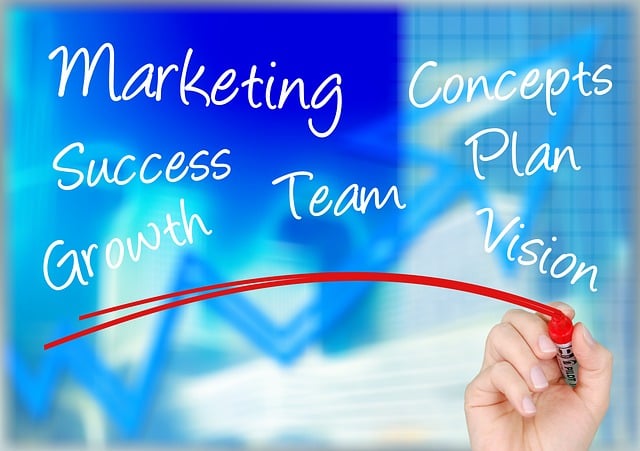“The automotive industry is experiencing a quiet revolution with the integration of AI-powered systems into car repair shops. This article explores effective growth strategies to leverage AI’s potential, focusing on marketing, operations, and performance measurement. Discover how AI can enhance customer engagement through targeted campaigns, streamline scheduling, and improve diagnostics accuracy. We provide a comprehensive guide to implementing these systems and defining success through key performance indicators (KPIs), ensuring auto shops stay competitive in the digital age.”
- Harnessing AI for Auto Shop Marketing: Strategies and Benefits
- Implementing AI-Powered Systems: A Step-by-Step Guide
- Measuring Success: Metrics and Key Performance Indicators (KPIs) for AI in Car Repair Shops
Harnessing AI for Auto Shop Marketing: Strategies and Benefits

In today’s digital era, car repair shops can leverage AI-powered systems for auto shop marketing to stand out from the competition and attract more customers. By implementing machine learning algorithms and natural language processing, shops can personalize marketing campaigns based on customer behavior and preferences. This enables them to offer tailored promotions, recommendations, and service packages, enhancing customer satisfaction and loyalty.
AI-driven marketing tools can analyze vast amounts of data to identify trends and patterns in vehicle maintenance and repair needs. Armed with this insight, auto shops can proactively reach out to potential clients with preventive maintenance suggestions, special offers for routine services, and accurate estimates for upcoming repairs. This proactive approach not only improves customer engagement but also fosters a reputation for expert care and forward-thinking service.
Implementing AI-Powered Systems: A Step-by-Step Guide

Implementing AI-Powered Systems: A Step-by-Step Guide
1. Assess Current Processes: Begin by evaluating your car repair shop’s existing workflows and pain points. Identify areas where manual labor is intensive or errors are common. This will guide you in understanding which aspects of your business can benefit most from AI integration.
2. Choose the Right AI Tools: Select AI-powered systems tailored to auto shop marketing and operations, such as predictive analytics for parts inventory management or natural language processing (NLP) for customer service automation. Look for solutions that seamlessly integrate with your existing software infrastructure to ensure smooth transition and maximum efficiency.
3. Pilot Testing and Training: Implement the chosen AI tools on a small scale initially to test their effectiveness. Provide staff training on using these systems, ensuring everyone understands the benefits and how to leverage them fully. Gather feedback from employees and customers during this phase to make necessary adjustments.
4. Full-Scale Rollout: Once successful pilot testing is completed, deploy the AI-powered systems shop-wide. Continuously monitor performance metrics to measure the impact of AI on efficiency, accuracy, and customer satisfaction. Regularly review these metrics to optimize system configurations and identify additional areas for AI implementation.
Measuring Success: Metrics and Key Performance Indicators (KPIs) for AI in Car Repair Shops

Measuring success is vital when implementing AI-powered systems in car repair shops. Key Performance Indicators (KPIs) should focus on both operational efficiency and customer satisfaction. For instance, tracking the time taken to diagnose issues can demonstrate the immediate benefits of AI, showing how it streamlines processes compared to traditional methods. By comparing these times over periods, repair shops can quantify their improved productivity.
Additionally, monitoring customer feedback and repeat business rates is essential for evaluating the impact on shop reputation and client retention. With AI-driven marketing, shops can also analyze data to understand customer preferences, allowing them to personalize services and promotions. This strategic approach enables car repair businesses to enhance their operations, attract more clients, and stay competitive in the market, leveraging AI-powered systems for auto shop marketing effectively.
The integration of AI-powered systems into car repair shop strategies offers a promising path forward. By leveraging these innovative tools for marketing, shops can enhance customer engagement and target specific audiences, ultimately driving growth. Implementing AI involves a structured approach, from data collection to system deployment, as outlined in this article. Success is measurable through various KPIs, allowing businesses to track their progress and adapt their strategies accordingly. Embracing AI in car repair is not just a trend but a necessary step towards staying competitive in the digital age.
